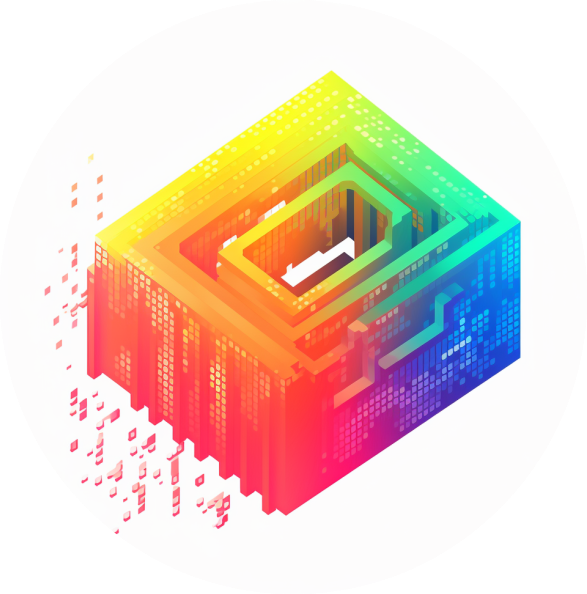Unleash Your Potential in Data Science with Free Resources: The upGrad Blog is a treasure trove of programs, courses, and resources designed to help individuals unlock their potential in the field of data science. From project ideas and topics for beginners in various fields, such as MBA HR, Python, software development, IoT, and computer science, to information on job-oriented short-term courses, the highest paying jobs in India, and career options after B.Com; this blog provides valuable insights and guidance. Whether you’re interested in understanding the difference between lists and tuples, exploring artificial intelligence salary in India, considering career options after BBA, or curious about AWS salary in India, the upGrad Blog has got you covered. Moreover, with free courses available for subjects like marketing, data science, machine learning, management, technology, and soft skills, individuals have the opportunity to enhance their knowledge and skills without any financial burden. The upGrad Blog also offers resources for studying in the USA and Canada, making it a comprehensive platform for those aspiring to pursue education abroad. Furthermore, with the added benefit of 1-on-1 career counseling, individuals can receive personalized guidance to navigate their professional journey effectively. So, let’s dive into the world of data science and unleash our true potential with the upGrad Blog.

1. Introduction to Data Science
Data science is a rapidly growing field that involves extracting insights and knowledge from large and complex datasets. It combines elements from various disciplines such as mathematics, statistics, computer science, and domain expertise to analyze and interpret data. This article will provide an overview of the importance of data science in different domains, the essential skills required to become a data scientist, free online courses for learning data science, online platforms for data science projects, open-source tools commonly used in data science, blogs and forums for the data science community, data science eBooks and resources, data science competitions and challenges, and additional resources for data science learning.
2. Importance of Data Science
2.1 In Business
Data science plays a crucial role in business decision-making and strategy formulation. By analyzing customer behavior, market trends, and sales data, businesses can gain valuable insights that drive innovation and optimize their operations. Data science enables organizations to improve their marketing strategies, enhance customer experience, detect fraud, and identify growth opportunities. The ability to make data-driven decisions has become essential in today’s competitive business landscape.
2.2 In Research
Data science is extensively used in research across various domains, including social sciences, healthcare, and environmental studies. Researchers leverage data science techniques to collect, analyze, and interpret large datasets to uncover patterns, correlations, and insights that can advance scientific understanding. Data science tools and methodologies assist researchers in conducting experiments, modeling complex systems, and making evidence-based conclusions.
2.3 In Healthcare
In the healthcare industry, data science is transforming patient care, disease diagnosis, and treatment plans. By analyzing medical records, genomic data, and patient outcomes, data science algorithms can aid in identifying risk factors, predicting disease progression, and personalizing treatment strategies. Data science also plays a vital role in health monitoring, early disease detection, and clinical decision support systems, ultimately leading to improved healthcare outcomes.
3. Essential Skills for a Data Scientist
3.1 Programming Skills
Proficiency in programming languages like Python, R, and SQL is essential for a data scientist. Python, with its extensive libraries and frameworks like NumPy, Pandas, and TensorFlow, is widely used in data science for tasks such as data cleaning, manipulation, and machine learning. R is another popular programming language specifically designed for data analysis and visualization. Additionally, SQL is utilized for querying and retrieving data from databases.
3.2 Statistical Analysis
A strong foundation in statistics is critical for data scientists to understand data patterns, test hypotheses, and draw meaningful conclusions. Statistical concepts like hypothesis testing, regression analysis, and probability theory are employed to analyze and interpret data. Data scientists should be well-versed in statistical tools and techniques to derive insights from data.
3.3 Data Visualization
Data visualization is the art of presenting data visually in a way that facilitates understanding and insights. Data scientists should possess skills in creating clear and compelling visualizations using tools such as Matplotlib, ggplot, and Tableau. Effective data visualization enables stakeholders to grasp complex information quickly, identify patterns, and make informed decisions.
4. Free Online Courses for Data Science
4.1 Coursera
Coursera offers a wide range of free online courses to learn data science. These courses cover topics such as machine learning, data analysis, data visualization, and statistical programming. Some popular data science courses on Coursera include “Introduction to Data Science in Python,” “Applied Data Science with Python,” and “Data Science and Machine Learning Bootcamp.”
4.2 edX
edX is another platform that provides free online courses on data science. These courses are offered by renowned universities and institutions and cover various aspects of data science, including data analysis, data visualization, and statistical modeling. Examples of popular data science courses on edX include “Introduction to Data Science” and “Data Science Essentials.”
4.3 Khan Academy
Khan Academy offers free online courses and tutorials on a wide range of subjects, including data science. Their data science courses cover fundamental concepts in statistics, probability, and data analysis. Khan Academy’s data science courses are suitable for beginners who want to develop a strong foundation in data science principles.

5. Online Platforms for Data Science Projects
5.1 Kaggle
Kaggle is a popular online platform for data science projects and competitions. It provides a wide variety of datasets and challenges for data scientists to practice and enhance their skills. Kaggle allows data scientists to collaborate, share insights, and participate in competitions to showcase their abilities. It is an excellent platform for hands-on learning and building a strong portfolio in data science.
5.2 DataCamp
DataCamp is an online learning platform that offers interactive courses and projects for data science. It provides a hands-on learning experience by providing real-world datasets and coding exercises. DataCamp focuses on teaching essential data science skills through practical projects, making it an ideal platform for beginners and intermediate learners.
5.3 GitHub
GitHub provides a platform for data scientists to showcase their data science projects and collaborate with other professionals. Data scientists can create repositories to store and share their code, datasets, and project documentation. GitHub also offers version control features, allowing data scientists to track changes to their projects and work collaboratively on code.
6. Open Source Tools for Data Science
6.1 Python
Python is one of the most popular programming languages in the field of data science. It offers a vast ecosystem of open-source libraries and frameworks that simplify data analysis, machine learning, and data visualization tasks. Libraries like NumPy, Pandas, Scikit-learn, and Matplotlib provide powerful tools for data manipulation, analysis, and visualization. Python’s versatility and ease of use make it a preferred choice for many data scientists.
6.2 R
R is another widely used programming language for data science, particularly in statistical analysis and data visualization. R provides numerous packages and libraries specifically designed for statistical modeling, machine learning, and exploratory data analysis. It also offers excellent tools for creating high-quality visualizations. Data scientists often use R for its extensive statistical capabilities and specialized functions.
6.3 Apache Hadoop
Apache Hadoop is an open-source framework for distributed storage and processing of large datasets. It enables data scientists to work with massive volumes of data by distributing the processing across multiple machines. Hadoop’s key components, such as the Hadoop Distributed File System (HDFS) and MapReduce, provide scalable and efficient solutions for handling big data. Data scientists leverage Apache Hadoop for tasks like data preprocessing, feature engineering, and large-scale data analysis.

7. Blogs and Forums for Data Science Community
7.1 Kaggle Blog
Kaggle’s blog is a valuable resource for data scientists, offering insights, tutorials, and best practices in data science. The blog features data science competitions, success stories, and interviews with prominent data scientists. It covers a wide range of topics, including machine learning algorithms, data visualization techniques, and data preprocessing tips.
7.2 Towards Data Science
Towards Data Science is a popular online platform that publishes articles, tutorials, and discussions related to data science and machine learning. It features contributions from data scientists worldwide and covers a wide range of topics, including deep learning, natural language processing, and data analysis techniques. Towards Data Science offers valuable insights and practical guidance for data scientists of all levels.
7.3 Data Science Central
Data Science Central is a community-driven platform that provides resources, discussions, and articles on various aspects of data science. It covers topics like data mining, predictive analytics, and data visualization. Data Science Central features contributions from industry experts, making it a valuable resource for staying updated with the latest trends and developments in data science.
8. Data Science eBooks and Resources
8.1 Free eBooks
There are several free eBooks available on the internet that cover various aspects of data science. These eBooks provide in-depth knowledge and practical guidance on topics such as machine learning, data analysis, and statistical modeling. Some recommended free eBooks for data science beginners include “Python for Data Analysis” by Wes McKinney, “R for Data Science” by Hadley Wickham and Garrett Grolemund, and “The Elements of Statistical Learning” by Trevor Hastie, Robert Tibshirani, and Jerome Friedman.
8.2 Online Libraries
Online libraries such as SpringerLink and OpenAI offer a wide range of data science books and resources. These libraries provide access to research papers, journals, and eBooks on topics like machine learning, data mining, and statistical analysis. Online libraries enable data scientists to explore advanced topics and access cutting-edge research in data science.
8.3 Data Science Blogs
Data science blogs provide valuable insights, tutorials, and resources for data scientists. Blogs like DataCamp, Analytics Vidhya, and KDnuggets offer a wealth of articles, tutorials, and best practices in data science. They cover a wide range of topics, including data visualization, machine learning algorithms, and data analysis techniques. Data science blogs are an excellent source of information for data scientists looking to expand their knowledge and skills.
9. Data Science Competitions and Challenges
9.1 Kaggle Competitions
Kaggle hosts numerous data science competitions that enable data scientists to solve real-world problems and showcase their skills. Competitions range from classification tasks to image recognition challenges. Participating in Kaggle competitions provides an opportunity for data scientists to work on diverse datasets, learn from peers, and gain recognition in the data science community.
9.2 Data Science Hackathons
Data science hackathons are events where data scientists come together to solve specific challenges within a limited timeframe. These hackathons often involve analyzing and deriving insights from provided datasets to address specific problems or create innovative solutions. Data science hackathons foster collaboration, creativity, and skill development among participants.
9.3 Analytics Vidhya Challenges
Analytics Vidhya organizes regular data science challenges where data scientists can participate and compete against their peers. These challenges cover a wide range of topics and difficulty levels, allowing participants to test their skills and learn from real-world data problems. Analytics Vidhya challenges provide an interactive and engaging platform for data scientists to enhance their problem-solving abilities.
11. Additional Resources for Data Science Learning
11.1 YouTube Channels
YouTube offers a wealth of data science tutorials, lectures, and educational content. Channels like “sentdex,” “DataCamp,” and “StatQuest with Josh Starmer” provide comprehensive video tutorials on various data science topics. These channels cater to different skill levels and cover topics ranging from machine learning algorithms to data visualization techniques. YouTube channels are a convenient and accessible resource for data scientists to learn new concepts and techniques.
11.2 Podcasts
Podcasts are an alternative way to consume data science content and keep up with the latest trends. Podcasts like “Data Skeptic,” “Partially Derivative,” and “Super Data Science” feature interviews, discussions, and insights from data science experts. Listening to podcasts allows data scientists to stay updated and learn from industry leaders while multitasking.
11.3 Online Communities
Online communities like Reddit’s “r/datascience” and Stack Overflow’s “Data Science” section provide platforms for data scientists to ask questions, seek advice, and engage in discussions with peers. These communities offer a wealth of collective knowledge and experience and provide an opportunity for data scientists to network, share insights, and seek guidance from the broader data science community.
In conclusion, data science plays a pivotal role in various domains, including business, research, and healthcare. To become a successful data scientist, one must develop essential skills in programming, statistical analysis, and data visualization. Free online courses, platforms for data science projects, open-source tools, blogs and forums, data science eBooks, competitions and challenges, and additional resources are available to support data science learning and professional development. Exploring these resources can pave the way for a rewarding career in data science.

